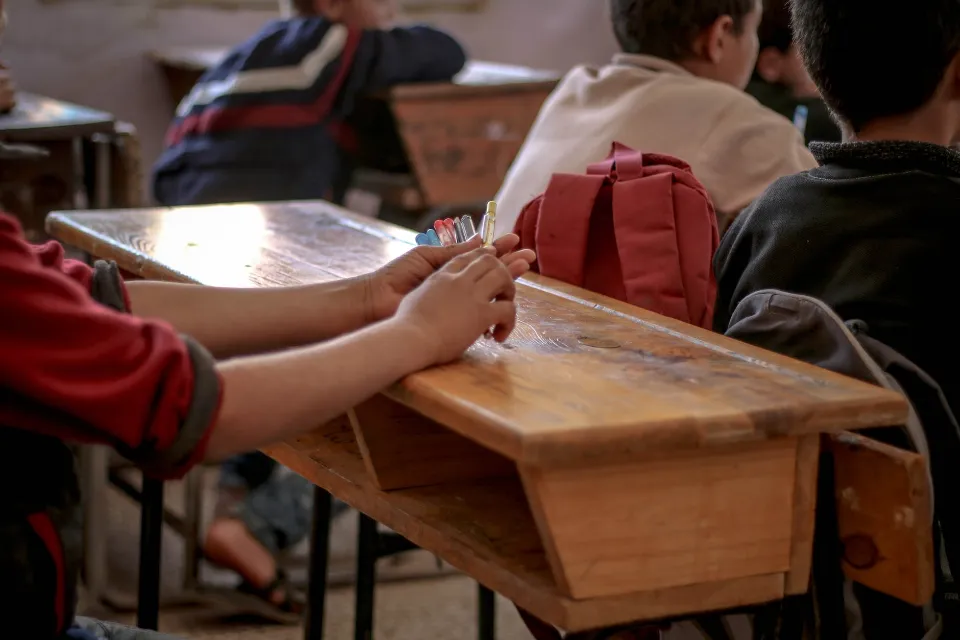
Is Dropping Classes Bad? Think Twice Before You Act
Learn about the advantages and disadvantages of dropping classes, as well as how to choose whether or not to do so.
Are you having trouble in a class or simply don’t like it and wondering if you should drop it? Are you concerned about how this will appear to colleges and potential employers? Do you need to drop a class?
Dropping a class could be a good option for you, depending on the details of your situation. But before you do, be sure you know why you want to drop the course and what will happen if you do. Furthermore, dropping a course that is required for your desired major may not be the best course of action.
Before you decide to drop a college class, let’s look at the various factors and justifications.
Is Dropping Classes Bad?
Dropping a class is much better for your GPA than failing a class or getting a C or D in it because a dropped class does not affect your grade point average. By allowing you to focus more time on other classes and improve your grades in them, dropping a class may also help you raise your GPA.
If you are really struggling with a class, dropping it can also significantly reduce your stress and anxiety.
Related:
- Is B A Good Grade In Middle School?
- Is D a Passing Grade in Middle School?
- Reasons Why Should Students Get Paid for Good Grades
When Does Dropping a Class Look Bad?
There are a lot of classes, a lot of assignments, and a lot of pressure to perform well in college. It’s normal to experience moments of overwhelm and to feel like giving up. Withdrawing from a class might not always be the best course of action, though.

Major Courses
For instance, dropping a class that is necessary for your major may put you too far behind if you are having trouble with it. Transferring from a community college to a university necessitates taking specific courses, particularly prerequisites for majors.
By dropping a major preparation course, which is a prerequisite for transferring, you are essentially lengthening the time it will take to transfer and graduate.
Multiple Withdrawals
Without a doubt, dropping out of a class never presents well. Dropping a course should be avoided if at all possible, whether it’s because you’re having trouble with the material or you’re just not feeling the class.
However, sometimes events in life force you into a position where you must isolate yourself. If that’s the case, you should be aware that dropping multiple classes can start to reflect poorly on your transcript.
It can appear that you’re not taking your education seriously, in addition to giving the impression that you are unable to manage a full course load.
So, if you ever find yourself in a predicament where you must drop a class, try to keep it to just one. You can protect your academic record in this manner and prevent any possible harm.
Pre Or Post “W” Deadline?
Likewise, if the semester is about to end, withdrawing might not give you enough time to make up the work. It is important to think about withdrawing if you are certain that your grade in the class will be poor, but only if you do so before the withdrawal deadline.

In most cases, it’s advisable to consult your professor or an academic advisor before deciding to drop a class. They can aid you in weighing your options and selecting the best course of action for your circumstances.
What Does Dropping a Class Mean?
It basically refers to withdrawing from a course by a specific deadline. For both adding and dropping classes, most colleges will set up specific deadlines. It’s as if nothing ever happened when you drop a class before the drop deadline.
This implies that it won’t appear on your transcripts and that the grade you received up to that point will vanish from your academic record.
If you choose to drop a class after the drop deadline, it is considered “withdrawing” from a class. When you withdraw from a class, instead of having a grade on your transcript, it will be marked with a “W,” and according to the school policy, you may not get the money back that you had paid to enroll. You Might Also Like: Why Do People Choose Homeschooling?
Why Might You Want to Drop a Class?
There are a number of reasons a student may want to drop a class, including:

- You have too many honors or AP classes signed up for and not enough time to complete them all.
- You are no longer interested in or finding any use for the course you signed up for because it is not what you anticipated.
- You must drop one class because you registered for too many classes—more than the typical high school course load.
- You feel that the class won’t teach you much and that the way it is taught is bad.
- You don’t think you’ll be able to pass the class or get a good grade because it is too difficult.
- Your decision to enroll in classes in a different subject was motivated by a change in your interests or anticipated college major.
- You are switching to a more difficult version of the current class or the subsequent course in the sequence because it is too easy for you.
Things to Consider Before You Dropping a Class
You should take into account the following factors before dropping a class.
Do You Need the Class for Your Major?
You should find out when it is offered throughout the year and if you require the class for your major at other times. Make sure there are alternative professors if you are dropping the class due to the instructor; otherwise, you will soon find yourself back in the same predicament.
Will It Affect Your Financial Aid?
Some financial aid is contingent upon completing a specific number of course credits within a specific time frame. In order to ensure that your financial aid is not impacted if you drop a class and forfeit those credits, check your financial aid eligibility.
Does It Affect Your GPA?

Your GPA shouldn’t be affected if you withdraw from a course before the deadline. It might be worthwhile to discuss your specific situation with your college counselor to determine the best course of action if you are unsure about this fact or have an extenuating circumstance.
Have You Tried to Increase Your Grades?
As previously stated, you should pause and think twice before dropping the class if you don’t want to try. Like life, college will present its fair share of difficulties, but it is through these difficulties that you develop and learn.
What Other Options Are There?
The last resort when you are having trouble in a class should be to drop it. The first thing you should do is try to change the way you study, talk to your peers, ask for help, get feedback from your professor or college advisor, and try to learn the material in the way that suits you best.
When Should You Drop a Class?
You should typically be able to drop a class through the middle of the semester. To avoid getting a W or having a bad class affecting your GPA, you must know when to withdraw from a class.
When Your Advisor Or Professor Recommends It
Nobody knows your courses as well as your professor. Your professor might be willing to give you extra credit or offer to tutor if you’ve been a good student thus far and participate in class even when you don’t know the answer.

You could consult your advisor as an additional option. You probably have to go through your advisor to register for classes because they are the best person to put you on the path to academic success. You can rely on their advice because they have dealt with countless situations like yours.
You’re Nearing Academic Probation
When a student allows their GPA to drop below 2.0, they often enter academic probation. To make sure you can fulfill your academic obligations, academic probation is a precaution. Until you raise your grades again, you might be moved to a part-time class.
Being on academic probation reflects poorly on your transcript. Going with the W may be better for you in the long run if you’re debating whether to risk academic probation or take a W.
Your Other Classes Are Slipping
Have you neglected other classes so that you could get the grade in the class you’re worried about? Do you frequently pick out certain assignments to finish over others? Instead of having to choose between your classes, you should be able to order them according to their due dates.
Consider withdrawing from your at-risk class if your other grades are suffering as a result of your efforts. You shouldn’t sacrifice all of your other grades for one class. Your GPA won’t be impacted if you drop one class, but if you let all of your grades slide while managing too many classes, it will have a negative effect on you.
Summary: Should You Drop a Class?
Is it acceptable to drop a course if you’re having trouble with it or just really don’t like it? As mentioned above, in most cases it’s It is acceptable to drop a class, especially if you have never done so before. Colleges are aware that life circumstances can change, so having one dropped class on your transcript won’t affect your college applications.
Regardless of how well or poorly you perform in the course, dropping a course might make the most sense if you decide to completely change your career or major.
Make sure that your decision won’t have a negative impact on any ancillary aspect of earning your degree before deciding to drop out of classes. Think through your options and your justifications.
FAQs
Is It Better to Drop Or Fail a Class?
Dropping a class is better than withdrawing, but withdrawing is better than failing. A failing grade will lower the student’s GPA, which may prevent a student from participating in a particular major that has a GPA requirement.
Does It Hurt You to Drop a Class?
Dropping a class is much better for your GPA than failing a class or getting a C or D in it because a dropped class does not affect your grade point average. As a result of having more time to focus on other classes and improve your grades there, dropping a class may also help you improve your GPA.
What is a Good Reason to Drop a Class?
Other reasons for dropping a class in college include the following: Signing up for too many classes and finding the workload overwhelming. Changing your major and your classes. Having trouble keeping up with course requirements or comprehending the subject.


